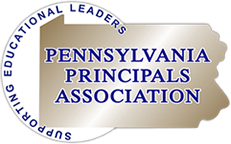NAESP Advocacy Update
May 22, 2018
School Safety
NAESP Organizes National School Safety Meeting, Urges U.S. Dept. of Education Commission on School Safety to Engage Stakeholders
On May 11, NAESP organized a meeting on Capitol Hill with stakeholders from 14 national education groups to discuss strategies to improve school safety. The discussion centered on ways to elevate strategies and policies to enhance school safety and strengthen access to mental health services in schools. The coalition discussed ideas for how the group could work together collaboratively to advance school safety policy priorities and to communicate a common message to states and the federal government.
Following the meeting, the coalition sent a letter to Secretary Devos requesting that the U.S. Department of Education’s Commission on School Safety meaningfully engage principals, school personnel, parents, superintendents and state education chiefs.
- Key Takeaway: School safety and student well-being issues are complex, but NAESP believes that the nation must find research-based policy solutions that lead to meaningful change.
NAESP Supports Bill to Improve Law Enforcement-School Coordination
On April 25, Senators Joe Manchin (D-WV), Shelley Moore Capito (R-WV), and Tim Kaine (D-VA) introduced the “Handle With Care Act of 2018.” NAESP supports this legislation because it would boost coordination between law enforcement and school-level personnel to better support students affected by trauma-related events. The legislation would help schools ensure these students receive timely interventions to mitigate the impact of trauma so they can focus on learning.
- Key Takeaway: The “Handle With Care Act of 2018” aligns with NAESP’s push for a nonpartisan, comprehensive approach to improving school safety and mental health services in schools.
Vouchers
NAESP Opposes Voucher Push on Capitol Hill
Republicans in the House and Senate recently introduced the Military Education Savings Account Act of 2018, which would funnel dollars from the Impact Aid program into a private school voucher program for students with an active-duty parent in the military. Impact Aid provides funding to school districts that have lost local tax revenue due to the presence of federal tax-exempt land, such as military installations, Native American reservations, or national parks. It is expected that bill sponsors in the House will try to offer the legislation as an amendment to the FY19 National Defense Authorization Act, which is expected to be considered by the full House of Representatives the week of May 21.
|
Please visit NAESP’s Legislative Action Center and urge your members of congress to vote NO on this legislation |
||
|
||
|
A letter from the Military Coalition, which opposes the legislation, can be found here.
|
|
Pulling Back Funding in FY18 Budget Bill?
On May 8, the White House submitted to Congress a “rescission package” that would rescind a total of $15.4 billion from 38 programs that have “unobligated funding” from previous fiscal years. FY18 funding is not included in this proposal, as was previously feared. Congress now has 45 days to pass the package with just a majority vote in each chamber. If Congress does not approve the whole package, the funding remains and cannot be proposed again for rescission.
- Key Takeaway: While the proposal does not include funding rescissions for the Department of Education, it does reduce funding for a handful of education-related programs that could have big implications for funding in the FY19 Labor-HHS-Education appropriations bill, which funds the Department of Education.
